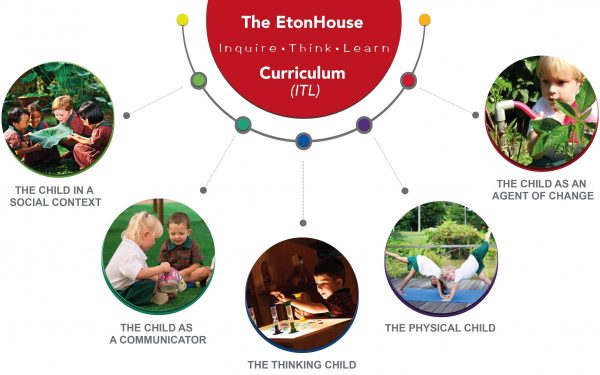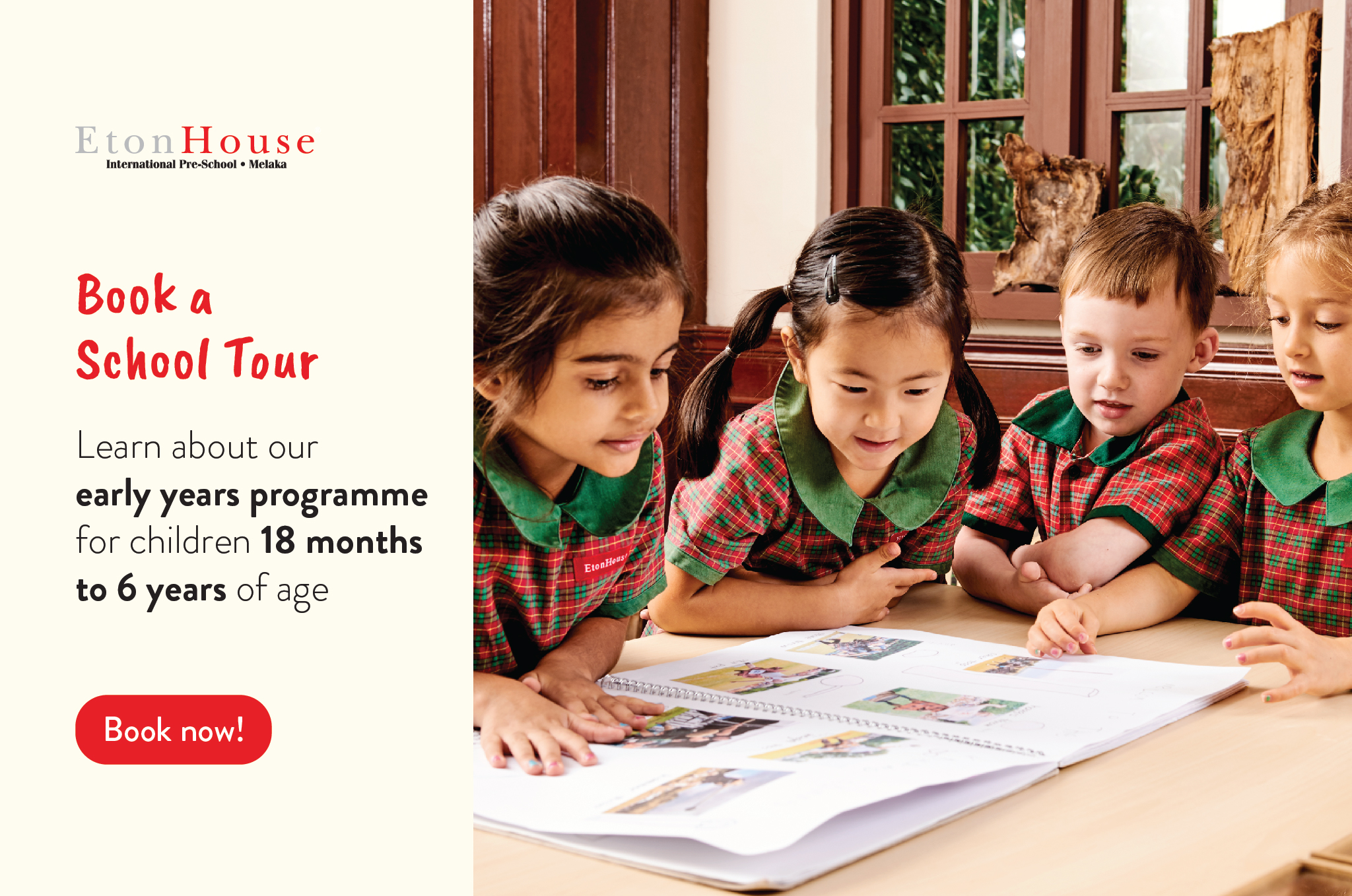Pre-School
The EtonHouse schools believe in the Image of Child as the first and singularly most important consideration, acknowledging children as competent and capable thinkers and communicators. The EtonHouse Inquire Think Learn Curriculum (ITL) trusted for over 20 years draws inspirations from the Reggio Emilia approach in Italy. The learning outcomes refer to the Singapore Ministry of Education’s Nurturing Early Learners and ECDA’s Early Years Development Framework. EtonHouse pre-schools at Broadrick, Newton, Thomson and 718 Mountbatten Road follow the International Baccalaureate PYP programme.

You can navigate through your child’s broad learning outcomes within the ITL framework through these images.
Pre-Nursery
Starting at Pre-Nursery, your child will have multiple opportunities to strengthen his or her social, language, physical and cognitive skills. He or she will develop social competence, a sense of autonomy and the ability to work independently and interdependently. In the process, your child will become a skillful communicator and develop a repertoire of verbal and non-verbal communication strategies in both English and Chinese .
Through careful planning and implementation of inquiries within the ITL framework that evolve from children’s ideas, your child will gain knowledge about the world and develop problem solving and physical skills to support them to become independent in everyday tasks.
The expansive and purposeful physical environment honors the EtonHouse Image of Child. Your son or daughter will learn in comfortable spaces that reflect respect for his of her ideas, interest and home cultures, as well as beauty and order. Nature education and sustainability form important pillars in an EtonHouse education.
Nursery
Within the Nursery class we offer a safe and nurturing environment for your child to explore and become independent thinkers and communicators. The classroom environment acts as the third teacher, and with careful planning and setting up, you child will access literacy and numeracy opportunities as well as develop his or her social skills.
As long term goals, children are supported to enhance their language and literacy capacities. Your child will have opportunities to express himself or herself in “100 Languages of Children”. Every medium (music, visual art and so on) invites children to consider a new set of challenges in order to successfully express their ideas, thoughts and feelings. With interactions, they build oral language skills and come to see mark making/writing and reading as valuable communication skills.
Young children develop familiarity with mathematics, science and technology through their daily interaction with the world. By providing play experiences and observation, we aim to form an important part of your child’s ability to develop knowledge and understanding about concepts like numbers, shape, estimation, prediction, sequencing and classifying.
Kindergarten
Through inquiry, your Kindergarten child will bring ideas to the learning process and work with the support and guidance of teachers to seek answers, creatively solve problems and challenge his or her thinking. They deepen their understanding of concepts and apply and develop skills and knowledge across all domains of learning as they work cooperatively and collaboratively with others.
Language and literacy learning focuses on writing and reading as well as on speaking and listening, and the bilingual, inquiry approach provides a context for meaningful opportunities to engage with both English and Chinese each day.
Mathematical, scientific and technological learning is embedded in our inquiries as well as being taught to ensure that your child has the skills in place to approach inquiry learning independently.
The Arts provide a conduit through which the children can express themselves; with learning invitations intentionally planned to capitalize on children’s curiosities and enhance their engagement. Specialist teachers support the Arts.
Your child will also be supported in his or her transition to formal schooling. Teachers assist families to prepare for the various primary school assessments and support children to adapt to the changes that come from being a member of a larger school community.

